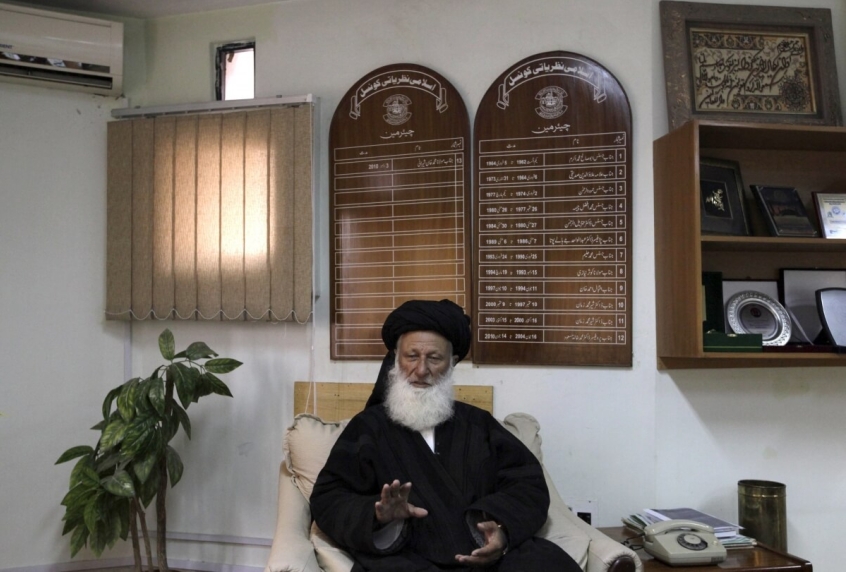
A Christian organisation monitoring human rights in Pakistan has welcomed a signal by a powerful religious figure there that the country's notorious blasphemy laws could be reviewed.
The head of the Council of Islamic Ideology, which advises the government on the compatibility of laws with Islam, said in an interview with Reuters he was willing to open a debate and see whether the death penalty was an appropriate penalty.
"The government of Pakistan should officially, at the government level, refer the law on committing blasphemy to the Council of Islamic Ideology," said Muhammad Khan Sherani. "There is a lot of difference of opinion among the clergy on this issue.
"Then the council can seriously consider things and give its recommendation of whether it needs to stay the same or if it needs to be hardened or if it needs to be softened."

Nasir Saeed, director of CLAAS-UK, said the statement meant there was "some hope" for Pakistani Christians, who are the main victims of the law. While no one has yet been executed for contravening it, lynchings are common and many Christians are in prison because they have been falsely accused as a way of settling private scores. Salman Taseer, a prominent liberal politician, was killed by his own bodyguard in 2011 after he championed the cause of a Christian woman sentenced to death under the law.
Saeed said: "Although there is not much hope, the chairman's comments are encouraging, as a few years back he was not even willing to discuss this law.
"Although the council can only make recommendations, it is up to the government whether to accept and implement those recommendations."
He added: "There is a need to bring changes to stop the law's continuous misuse, or at least for safeguards to be introduced.
"We have seen in the past how ruthlessly this law has been misused against minorities, and even the Muslims. Christians consider this law a root cause of their persecution and have been demanding an amendment for years. Churches have been attacked, several Christian towns have been set on fire, and several innocent people have been killed extra judicially. But the government has failed to bring this law to the Parliament.
"However now that the chairman of the Council of Islamic Ideology has expressed his willingness, it seems an appropriate time, so the government must consider this offer and bring some changes to stop the ongoing misuse of the blasphemy laws."
However Sherani, a member of parliament representing Pakistan's largest Islamist party, the Jamiat Ulema-e-Islam, is not regarded as a liberal or reforming figure.
In recent years his 54-year old council has ruled DNA cannot be used as primary evidence in rape cases, and supported a law that requires woman alleging rape to get four male witnesses to testify in court before a case is heard.
His members' decision last month to block a bill to impose harsher penalties for marrying off girls as young as eight or nine has angered human rights activists.
Sherani said there were many un-Islamic laws on the statute book that he was advising the government to overturn, including presidential pardons for a murderer.
Many of Pakistan's problems, including violence against religious minorities, were the result of the government failing to be sufficiently Islamic and instead pandering to the West, he said.
"Pakistan's present government is a defender of the interests of the West," Sherani said. "Don't equate what the government thinks to what Islam is."
Additional reporting by Reuters.















